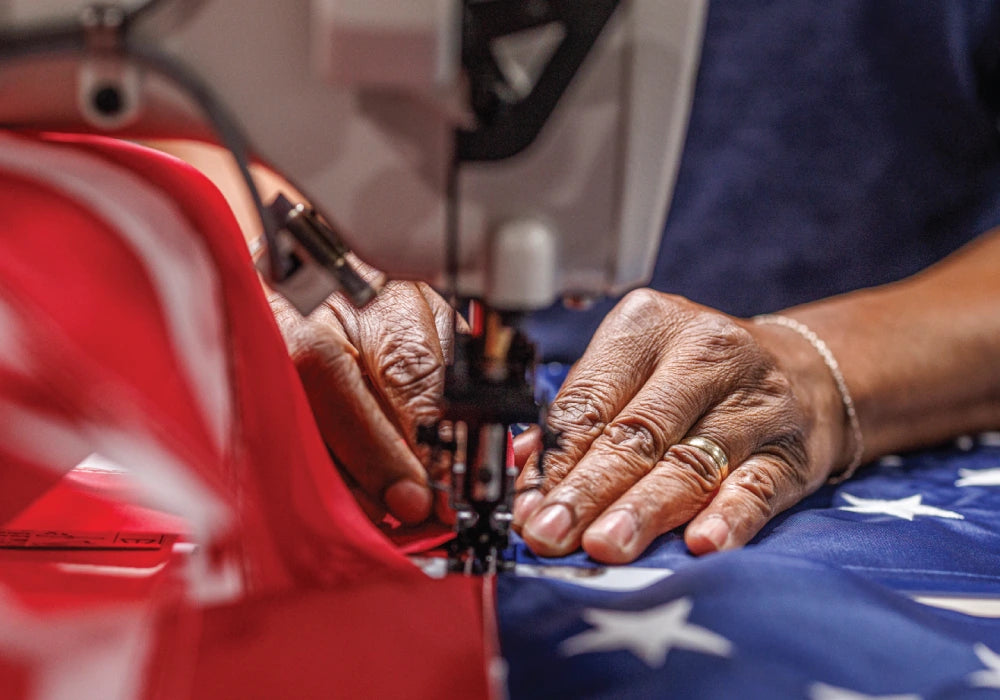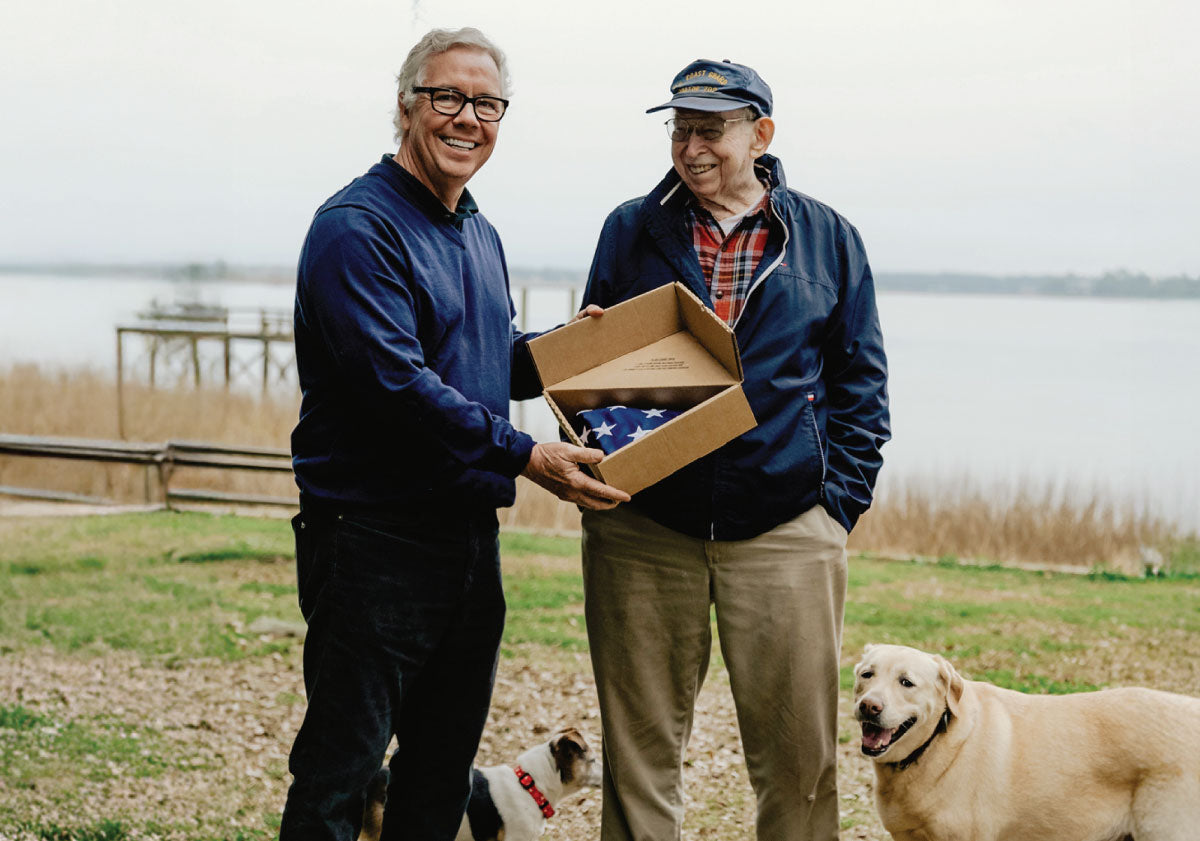August 20

1911
A dispatcher in the New York Times office sent the first telegram around the world via commercial service. The Times decided to send the telegram in order to determine how fast a commercial message could be sent around the world by telegraph cable. The message, reading simply, “This message sent around the world,” left the dispatch room on the 17th floor of the Times building in New York at 7 p.m. on August 20. After it traveled more than 28,000 miles, being relayed by 16 different operators, through San Francisco, the Philippines, Hong Kong, Saigon, Singapore, Bombay, Malta, Lisbon and the Azores–among other locations–the reply was received by the same operator 16.5 minutes later.

1920
Professional football was born when seven men, including legendary all-around athlete and football star Jim Thorpe, met to organize a professional football league at the Jordan and Hupmobile Auto Showroom in Canton, Ohio. The meeting led to the creation of the American Professional Football Conference (APFC), the forerunner to the hugely successful National Football League. On September 17, the league met again, changing its short-lived name to the American Professional Football Association (APFA) and officially electing Jim Thorpe as the league’s first president.

1982
U.S. Marines were deployed to Lebanon during the Lebanese Civil War as part of a multinational force with France, Italy, and Great Britain. 800 U.S. Marines land in Beirut to oversee the Palestinian withdrawal from Lebanon. It was the beginning of a problem-plagued mission that would stretch into 17 months and leave 262 U.S. servicemen dead. On October 23, Lebanese terrorists evaded security measures and drove a truck packed with explosives into the U.S. Marine barracks in Beirut, killing 241 U.S. military personnel. On February 7, 1984, President Ronald Reagan announced the end of U.S. participation in the peacekeeping force.
August 21

1858
Senator Stephen Douglas of Illinois and Abraham Lincoln, a Kentucky-born lawyer and one-time U.S. representative from Illinois, began a series of famous public encounters on the issue of slavery. The two politicians, the former a Northern Democrat and the latter a Republican, were competing for Douglas’ U.S. Senate seat. In the seven Lincoln-Douglas debates—all about three hours long—Lincoln argued against the spread of slavery while Douglas maintained that each territory should have the right to decide whether it would become free or allow slavery. Lincoln lost the Senate race, but his campaign brought national attention to the young Republican Party. Lincoln would go on to win the presidency in 1860, which signaled the secession of the Southern states.

1959
The modern United States received its crowning star when President Dwight D. Eisenhower signed a proclamation admitting Hawaii into the Union as the 50th state. The president also issued an order for an American flag featuring 50 stars arranged in staggered rows: five six-star rows and four five-star rows. The new flag became official July 4, 1960. Many in Congress opposed the formal annexation of Hawaii, and it was not until 1898, following the use of the naval base at Pearl Harbor during the Spanish-American War, that Hawaii’s strategic importance became evident and formal annexation was approved. During World War II, Hawaii became firmly ensconced in the American national identity following the surprise Japanese attack on Pearl Harbor in December 1941.

1980
Animal rights advocates Ingrid Newkirk and Alex Pacheco founded People for the Ethical Treatment of Animals. PETA has been criticized from all sides—many believe them to be extremists and find their methods distasteful, while other activists criticize PETA’s willingness to work with corporations in industries like fast food or fashion to make incremental improvements to animal welfare. Nonetheless, PETA has achieved a litany of animal-rights reforms: convincing some of the world’s largest fashion brands not to use fur, animal-testing bans by thousands of personal-care companies, ending the use of animals in automobile crash tests, closing the Ringling Brothers and Barnum & Bailey’s Circus and exposing thousands of instances of animal cruelty across the world are just a few of the organization’s accomplishments.
August 22

1851
The U.S.-built schooner America bested a fleet of Britain’s finest ships in a race around England’s Isle of Wight. The ornate silver trophy won by the America was later donated to the New York Yacht Club on condition that it be forever placed in international competition. Today, the “America’s Cup” is the world’s oldest continually contested sporting trophy and represents the pinnacle of international sailing yacht competition. Since the 1920s, the America’s Cup race has been between one defending vessel and one challenging vessel, both of which are determined by separate elimination trials. In 1983, the United States lost the trophy for the first time in 132 years when Australia II defeated Liberty off Newport, Rhode Island.

1950
Officials of the United States Lawn Tennis Association (USLTA) accepted Althea Gibson into their annual championship at Forest Hills, New York, making her the first African American player to compete in a U.S. national tennis competition. In the early 1960s, Gibson became the first Black player to compete on the women’s golf tour, though she never won a tournament. She was elected to the International Tennis Hall of Fame in 1971. Though she once brushed off comparisons to Jackie Robinson, the trailblazing Black baseball player, Gibson has been credited with paving the way for African American tennis champions such as Arthur Ashe and, more recently, Venus and Serena Williams. After a long illness, she died in 2003 at the age of 76.

1989
Nolan Ryan of the Texas Rangers became the first pitcher in major league history to register 5,000 career strikeouts. Ryan would go on to rack up a total of 5,714 strikeouts, over 1,500 more than his closest competition. Ryan had requested before the game that play not be stopped to honor him. Instead, after the fifth inning, Ryan was saluted by President George H. W. Bush in a videotaped message. (The president’s son George W. Bush was then the owner of the Rangers.) Ryan is most famous for his record seven no-hitters; the last came in 1991 when he was 44 years old. Ryan retired in 1993 and was inducted into the Baseball Hall of Fame in 1999 after a record 27 year career.
August 23

1966
Lunar Orbiter 1 took the first photo of Earth as seen from lunar orbit. While a remarkable image at the time, the full resolution of the image was never retrieved from the data stored from the mission. In 2008, this earthrise image was restored by the Lunar Orbiter Image Recovery Project at NASA Ames Research Center. They obtained the original data tapes from the mission (the last surviving set) and restored original FR-900 tape drives to operational condition using both 60s era parts and modern electronics.

2000
Richard Hatch, a 39-year-old corporate trainer from Rhode Island, won the season-one finale of the reality television show Survivor and took home the promised $1 million prize. Survivor, whose slogan is “Outwit, Outplay, Outlast,” was a huge ratings success and spawned numerous imitators in the reality-competition genre. Produced by Mark Burnett (The Voice, The Apprentice), Survivor premiered on May 31, 2000, on CBS. The show centers around a group of sixteen strangers who are stranded for 39 days in a remote location where they must fend for food, water and shelter and compete in various challenges to win rewards and immunity from being voted out of the competition by their fellow contestants.

2008
The star-studded American women's basketball team led by the likes of Lisa Leslie, Sue Bird & Diana Taurasi win the gold medal at the Beijing Olympics with a convincing 92-65 win over Australia. The US women's team blew away their competition by an average margin of victory of 37.6 points a game en route to an unblemished 8-0 slate. In capturing the 2008 gold medal, the USA became the first women's traditional team sport to claim four straight gold medals, cementing USA Basketball's place as the most dominant program in women's U.S. Olympic Team history. Further, the win extended the USA's Olympic winning streak to 33 games, dating back to 1992 bronze medal victory over Cuba, and marked the USA's third straight victory over Australia in the Olympic gold medal game.
August 24

1873
William Henry Jackson became the first person to photograph Colorado’s elusive Mount of the Holy Cross, a natural cross of snow that lay hidden high in the rugged mountains of Colorado. The subject of myths and legends for years, the photo provided reliable proof of its existence and, to some, the mountain top became a religious symbol of Manifest Destiny. After thousands of years of erosion, two deep ravines have formed in the steep rocky face of the mountain peak. Intersecting at a 90-degree angle, the ravines shelter the winter snow from the sun well after the rest of the mountain snow has melted away. For a brief time, a nearly perfect cross of snow appears on the rock face, though it often melts away later in the summer.

1981
Mark David Chapman was sentenced to 20 years to life for the murder of John Lennon, a founding member of The Beatles. On December 8, 1980, Chapman shot and killed the 40-year-old singer, songwriter and peace activist, outside Lennon’s New York City apartment building, the Dakota, where he lived with his wife Yoko Ono and their young son Sean. Chapman initially entered a plea of not guilty by reason of insanity; however, he later decided to drop the insanity defense and plead guilty to second-degree murder. At his sentencing hearing on August 24, 1981, Chapman read from The Catcher in the Rye. Chapman’s requests for parole have all been denied and he continues to serve time in prison in New York.

1992
Hurricane Andrew made landfall in South Florida after causing extensive damage in the Bahamas. The Category 5 storm had sustained wind speeds as high as 165mph and gusts up to 174mph. Causing $27.3 billion in damages, Andrew was the costliest hurricane to hit the US until Hurricane Katrina in 2005. In the United States alone, the powerful storm took the lives of 65 people, destroyed 63,500 homes while damaging 124,000 more and felled 70,000 acres of trees in the Everglades. Hurricane Andrew remains only one of four tropical cyclones to make landfall in the continental United States as a Category 5.
August 25

1916
The National Park Service was established as part of the Department of the Interior when the National Park Service Organic Act was signed by Woodrow Wilson. The National Park Service established by the Act "shall promote and regulate the use of the Federal areas known as national parks, monuments, and reservations hereinafter specified by such means and measures as conform to the fundamental purpose of the said parks, monuments, and reservations, which purpose is to conserve the scenery and the natural and historic objects and the wild life therein and to provide for the enjoyment of the same in such manner and by such means as will leave them unimpaired for the enjoyment of future generations".

1950
President Harry S. Truman issued an executive order putting US railroads under the control of the Army to prevent a strike proposed by two enormous labor unions. Truman’s intervention was critical, as he had just ordered American troops into a war against North Korean communist forces in June. Since much of America’s economic and defense infrastructure was dependent upon the smooth functioning of the railroads, the 1950 strike proposed would have been catastrophic to the war effort. In a public statement that day, Truman insisted that “governmental seizure [of the railroads] is imperative” for the protection of American citizens as well as “essential to the national defense and security of the Nation.” He used the same justification for seizing control of steel plants when the United Steel Workers union struck later in the year.


2009
Edward “Ted” Kennedy, the youngest brother of President John F. Kennedy and a U.S. senator from Massachusetts, died of brain cancer at age 77. One of the longest-serving senators in American history, he was a leader of the Democratic Party and a spokesman for liberal causes who was also known for his ability to work with those on both sides of the political aisle. After JFK was elected the 35th US President, Ted won the special election to serve out the remainder of his brother’s Senate term, ending in January 1965. Massachusetts voters re-elected Kennedy to the seat eight more times. Kennedy was buried at Virginia’s Arlington National Cemetery, near the graves of his brothers John and Robert.
August 26

1794
In response to the Whiskey Rebellion, a violent uprising of farmers and distillers in western Pennsylvania in protest of a whiskey tax enacted by the federal government to cover debts of the Revolutionary War, President George Washington writes to Henry “Light Horse Harry” Lee, Virginia’s governor and a former general, that he had no choice but to act to subdue the “insurgents,” fearing they would otherwise “shake the government to its foundation.” This was the first great test of Washington’s authority as president of the United States. The president mounted his horse on September 30 to lead a force of 13,000–larger than any American army amassed in one place during the Revolution–to quell the uprising. The rioters dispersed in the presence of the federal troops and bloodshed was averted.

1939
The first televised Major League baseball game was broadcast on station W2XBS, the station that was to become WNBC-TV. Announcer Red Barber called the game between the Cincinnati Reds and the Brooklyn Dodgers at Ebbets Field in Brooklyn, New York. In 1939, the World’s Fair—which was being held in New York—became the catalyst for the historic broadcast. The television was one of the fair’s prize exhibits, and organizers believed that the Dodgers-Reds doubleheader on August 26 was the perfect event to showcase America’s grasp on the new technology. Today, televised sports is a multi-billion dollar industry, with technology that gives viewers an astounding amount of visual and audio detail. Cameras are now so precise that they can capture the way a ball changes shape when struck by a bat, and athletes are wired to pick up field-level and sideline conversation.

1968
Democratic National Convention was besieged by thousands of anti-Vietnam War demonstrators. During the violent four-day convention, police and National Guardsmen clashed with protesters outside the International Amphitheater, and hundreds of people, including innocent bystanders, were beaten by the Chicago police. Even CBS News correspondent Mike Wallace was punched in the face by a guard. In the convention’s aftermath, a federal commission investigating the convention described one of the confrontations as a “police riot” and blamed Chicago Mayor Richard Daley for inciting his police to violence. Nevertheless, eight political radicals—the so-called "Chicago Eight"—were arrested on charges of conspiring to incite the violence, and in 1969 their trial began in Chicago, sparking new waves of protests in the city.






